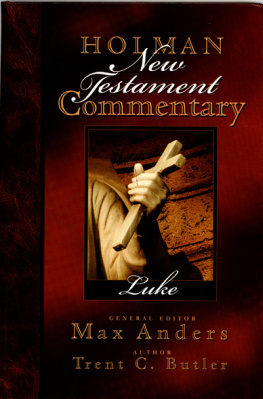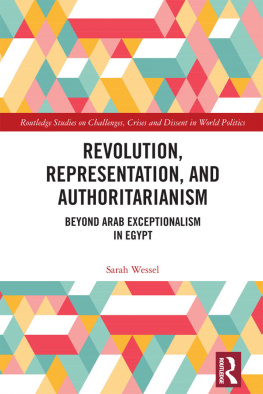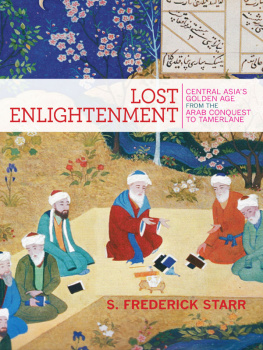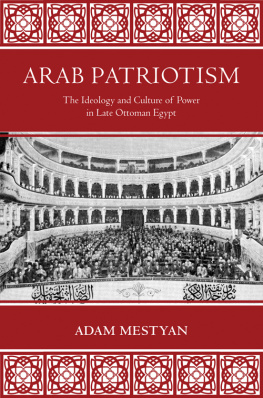Butler - The Arab Conquest Of Egypt
Here you can read online Butler - The Arab Conquest Of Egypt full text of the book (entire story) in english for free. Download pdf and epub, get meaning, cover and reviews about this ebook. year: 1902, publisher: Oxford At The Clarendon Press., genre: Detective and thriller. Description of the work, (preface) as well as reviews are available. Best literature library LitArk.com created for fans of good reading and offers a wide selection of genres:
Romance novel
Science fiction
Adventure
Detective
Science
History
Home and family
Prose
Art
Politics
Computer
Non-fiction
Religion
Business
Children
Humor
Choose a favorite category and find really read worthwhile books. Enjoy immersion in the world of imagination, feel the emotions of the characters or learn something new for yourself, make an fascinating discovery.

- Book:The Arab Conquest Of Egypt
- Author:
- Publisher:Oxford At The Clarendon Press.
- Genre:
- Year:1902
- Rating:3 / 5
- Favourites:Add to favourites
- Your mark:
- 60
- 1
- 2
- 3
- 4
- 5
The Arab Conquest Of Egypt: summary, description and annotation
We offer to read an annotation, description, summary or preface (depends on what the author of the book "The Arab Conquest Of Egypt" wrote himself). If you haven't found the necessary information about the book — write in the comments, we will try to find it.
The Arab Conquest Of Egypt — read online for free the complete book (whole text) full work
Below is the text of the book, divided by pages. System saving the place of the last page read, allows you to conveniently read the book "The Arab Conquest Of Egypt" online for free, without having to search again every time where you left off. Put a bookmark, and you can go to the page where you finished reading at any time.
Font size:
Interval:
Bookmark:




HENRY FROWDE, M.A.
PUBLISHER TO THE UNIVERSITY OF OXFORD
LONDON, EDINBURGH
NEW YORK
PREFACE
FOR this book, so far as its purpose is concerned, perhaps no apology is needed. It aims at constructing a history, at once broad and detailed, of the Saracen conquest of Egypt. No such history has yet been written, although scattered essays on the subject may be found from Gibbon onwards brief sketches or chapters in some wider treatise upon the Roman or the Arab empire. Indeed the fact that no serrous and minute study upon the conquest exists in any language is not a little remarkable: but it has been mainly due to two causesthe scantiness of the material accessible to ordinary students, and the total want of agreement among the authorities, familiar or unfamiliar, eastern or western.
The subject consequently has been wrapped in profound obscurity; to enter upon it was to enter a gloomy labyrinth of contradictions. This may seem exaggerated language: but it is no more than the truth, and it is borne out by the opinion of a very well-known writer, Mr. E. W. Brooks, who.says: "*' There is scarcely any important event in history of which the accounts are so vague and so discrepant as the capture of Alexandria. The whole history of the irruption of the Saracens into the [Roman] empire is indeed dark* and obscure: but of all the events of this dark period the conquest of Egypt is the darkest 1 / To render this obscurity in some
degree luminous, to bring together the results of recent inquiry, turning to use the mass of fresh material now available, to test the oriental authorities one against another and to set them in comparison with other groups of authorities, and so by the light of research and criticism to place the study of this period on a scientific basisthat at least is the design'with which this work has been undertaken. How far the achievement falls short of the design I am fully conscious. In some .cases the method failed: it was, in the words of Maeterlinck, 'like turning a magnifying glass on silence and darkness/ In other cases failure ^ has been due to my own shortcomings, such as the slightness of my acquaintance with Arabic, and the difficulty of carrying on in isolated fragments of leisure a work demanding concentration of .mind and close and continuous study. Nevertheless the result will, it is hoped, provoke further inquiry. Certainly I have been forced to disagree with nearly all the received conclusions upon the-subject of the conquest. Even in the most recent historians it will be found that the outline of the story is something as follows: that before the actual invasion of Egypt the country was laid under tribute to the Arabs by Cyrus for three *or more years ; that the refusal of the tribute by Manuel occasioned the invasion; that the Mukaukas, who was a Copt, sided with the Arabs; that the Copts generally hailed them as deliverers and rendered them every assistance; and that Alexandria after a long siege, full of romantic episodes, was captured by storm. Such is the received account.. It may seem presumptuous to say that it is untrue from beginning to end, but to me no other
conclusion is possible. Yet every one of these statements, when its foundation is discovered, is seen to rest on a truth or a half-truth; and nothing is more interestihg than to trace the manner in which facts have been misplaced or misunderstood, and so used in the construction of false history or legend.
Fault may perhaps be found with the fullness of the notes in places. The answer is that in dealing with a vast mass of controversial and contradictory matter I have felt 'bound to give both my authorities and my reasons at more length than would have been requisite in dealing with simpler materials. So too of the Appendices, which are very copious. But it was absolutely necessary to construct for oneself the whole framework both of the history and of the chronology. It was impossible, for example,' to write about the conquest until one had determined who the Mukaukas was, or until one had worked out the scheme of chronology. It would not have done merely to state what are often quite novel conclusions without setting out the data on which they are founded ; and those data are exceedingly complex, whether the question be the personality of Al Mukaukas, or the chronology of the Persian or of the Arab conquest.
In regard to the scope of the work, it seemed that the mere invasion of Egypt by the Arabs should not be treated as an isolated event, that its historic significance could only be rightly understood in relation to those great movements which brought the ancient empires of Rome and Persia into collision with the rising empire of Arabia. In some such way alone could the conquest be shown in its true per
pective. The reign of Heraclius offers an obvious starting-point, and happens to begin with some very vivid but almost unknown pictures from scenes in Egypt. It covers too the downfall of Persia, the active life of Mohammed, the loss of Jerusalem and Syria to the Caesars, and the Persian conquest of Egypt by Chosroes; and it illustrates the political and religious causes which were at work preparing the way for the sword of Isldm and the Kurdn. At the same time the action of events passing outside the borders of Egypt has for the most part been traced but lightly and kept subordinate to the main purpose of the book.
The sources and authorities for the history of the period chosen require some discussion. Of the short notices in western writers of more modern date Ockley's romantic History of the Saracens is almost as well known as Gibbon's Roman Empire. Sharpens Egypt under the Romans is not of much value. More recent information is given in Prof. Bury's edition of Gibbon, and the same writer's Later Roman Empire ; in Mr. Milne's Egypt under the Romans \ and in Prof* S. Lane-Poole's Egypt in the Middle Ages and.his Cairo in the 'Mediaeval Towns' Series. Weil's Geschichte der Chalifen is valuable, even indispensable, but somewhat out of date. Von Ranke's Weltgeschichte contains a passage on the conquest and an essay on Amru in Aegypten, which rehearse the conventional story. Indeed Von Ranke's opinion may be summed up in his own words : ' The conquest of Egypt resulted from the desertion of a treacherous ruler of the Copts to the Arab standard'* an opinion which can no longer hold the field. Of 1 Vol. v. pt. i. p. 143; the Essay id., pt. ii. pp. 268 seq.
the larger French histories one must mention de Saint-Martin's edition of Le Beau's Histoire du Ba$ Empire, to which later writers add little or nothing. Thus, the passage in S^dillot's Histoire G6n6rale des Arabes upon the conquest contains scarcely one accurate sentence. Even C. Diehl can write in his admirable Afrique Byzantine, ' Les Coptes embras-se'rent presque sans r^sister le parti de Tenvahisseur et assurerent par leur defection la victoire des Musulmans' (p. 553). But Renaudot's Historia Patriarcharum Alexandrinorum is a work of profound scholarship and research, and its importance is undiminished, as far as it goes. The learned works of Quatremre, who was remarkable alike for the range of his knowledge and the acumen of his judgements, have lost little of their value for students of Egyptian history. Yet even if western accounts were less defective, a fresh inquiry of this kind must be based on the original authorities. Of these the Greek writers are very disappointing. Theophdfries, who wrote in 813, has wholly misunderstood the Arab conquest. His brief and hurried summary confuses the first and second capture of Alexandria though he mentions neitherinvents a treaty with the Arabs previous to the invasion, and is void of all perspective. He is thus responsible for a good deal of false history. Nicephorus is somewhat better, but unfortunately there is a blank in his text from 641 to 668 : what remains is a ' mere list of defeated generals/ Both writers are fragmentary: they disagree with each other: and in both the chronology is impossible. John Moschus, as well as the Patriarchs of Jerusalem, Zacharias and Sophronius, are religious writers of the late sixth or early seventh century,
Font size:
Interval:
Bookmark:
Similar books «The Arab Conquest Of Egypt»
Look at similar books to The Arab Conquest Of Egypt. We have selected literature similar in name and meaning in the hope of providing readers with more options to find new, interesting, not yet read works.
Discussion, reviews of the book The Arab Conquest Of Egypt and just readers' own opinions. Leave your comments, write what you think about the work, its meaning or the main characters. Specify what exactly you liked and what you didn't like, and why you think so.











